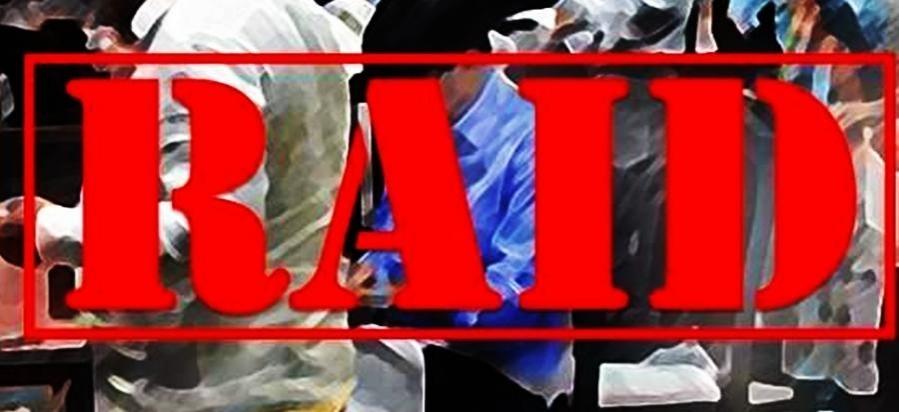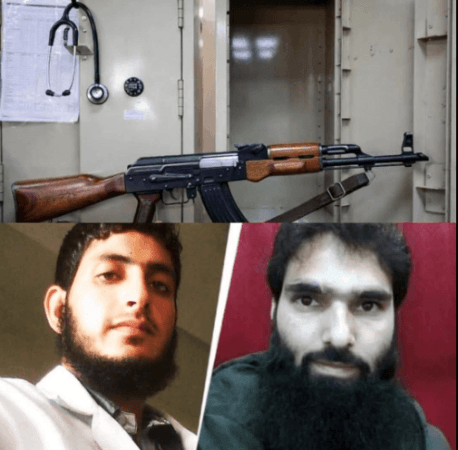
The Counter-Intelligence Kashmir (CIK) detained Dr. Umer Farooq and his wife Shahzada Akhtar for alleged online radicalization and preaching terrorism. Dr. Farooq was serving at the Super Specialty Hospital, SMHS, Sheerinbagh, Srinagar.
The CIK launched a major crackdown across Srinagar, Kulgam, and Anantnag, detaining the doctor and his wife for allegedly using their professional positions to promote online radicalisation and propagate extremist narratives.
With five mobile phones, an equal number of SIM cards, and other electronic gadgets in his possession, a doctor in the Kashmir Valley was allegedly involved in radicalizing and instigating youth to join different terror outfits.
The agency conducted coordinated searches at four locations in the three districts, acting on search warrants issued by the Hon'ble Designated Court under the NIA Act, Srinagar, in connection with FIR No. 05/2025 under Sections 196, 152, 351(2) of the Bharatiya Nyaya Sanhita (BNS) and Section 13 of the Unlawful Activities (Prevention) Act at Police Station CIK.

These searches are part of an ongoing crackdown on social media abusers operating in connivance with handlers across the border, who have been deliberately engaged in furthering terrorist, secessionist, and separatist agendas.
By leveraging their professional status and social standing, the accused individuals were allegedly using social media platforms to spread disinformation, radicalize youth, incite violence, and disturb public order—posing a serious threat to the peace and sovereignty of the Union of India.
During the operation, the two accused—Shahzada Akhtar, wife of Dr. Umer Farooq Bhat, a resident of Bugam, Kulgam, presently residing at Sheeren Bagh, Srinagar, along with her husband, Dr. Umer Farooq Bhat, who is currently posted at the Super Specialty Wing of SMHS Hospital, Srinagar—were detained.
CIK teams seized multiple digital devices and incriminating material directly relevant to the investigation. The recoveries include five mobile phones, five SIM cards, one tablet device, and additional digital and documentary evidence and literature.
Notably, Dr. Umer Farooq, a government employee, was found to have allegedly indulged in online unlawful activities, misusing his official position and social legitimacy to engage in behavior detrimental to public order and national security.
During the course of the investigation, it also emerged that the detained individuals were misusing their positions and social standing to mask their unlawful activities.

The female suspect, Shahzada Akhtar, in particular, is alleged to have been radicalizing local women through curated online and offline engagements—pushing divisive narratives and influencing vulnerable groups under the pretext of community interaction.
Her suspected affiliation with the banned terrorist organization Dukhtaran-e-Milat is currently under investigation. This aspect of the case highlights a concerning trend of exploiting social roles and professional identities to advance disruptive agendas.
All recovered devices are undergoing detailed forensic analysis, which is expected to uncover a broader digital network linked to organized propaganda activities. Early findings indicate the possibility of a larger ecosystem of collaborators and sympathizers whose efforts were aimed at amplifying extremist content and manipulating public perception.
This operation sends a clear and unambiguous message: No individual—regardless of position or profession—will be allowed to weaponize social or digital influence to aid terrorism or disturb public order.
The CIK remains resolute in its mission to dismantle the terror ecosystem, including its operators, facilitators, sympathizers, promoters, and propagators.

















